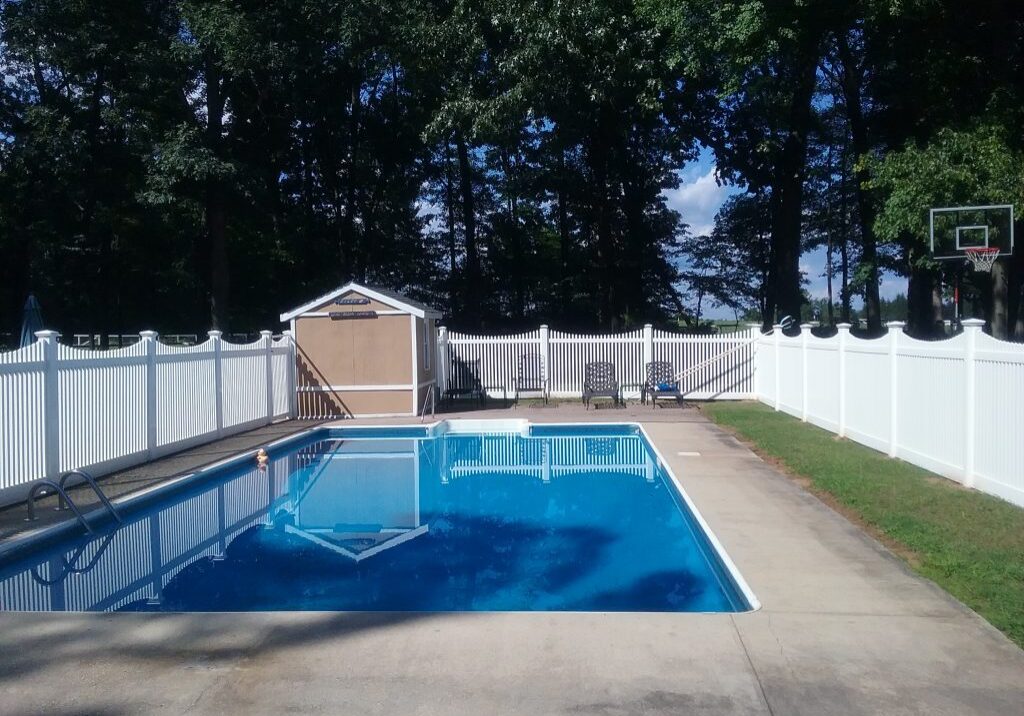All Categories
Featured

Picking the ideal fencing product is necessary for achieving the balance of toughness, appearances, and capability that suits your property. Wood, vinyl, and light weight aluminum are preferred options, each with special features that deal with certain demands. Below's an in-depth check out the benefits and drawbacks of these 3 products.
Timber Secure Fencing. Pros:. Classic Allure: Wood uses a natural, classic look that complements numerous architectural designs. Adjustable: It can be painted or discolored in a variety of shades and designs. Inexpensive: Wood fences are frequently cheaper in advance than plastic or aluminum. Eco-Friendly: As a renewable source, wood is eco-friendly and lasting when sourced sensibly. Disadvantages:. Maintenance-Intensive: Requires regular discoloration, painting, or securing to protect against weather and insects. Shorter Life-span: Depending upon the type of wood and environment, it usually lasts 10-15 years. Vulnerability to Damages: Prone to decomposing, bending, and termite damage without appropriate treatment. Wood is excellent for home owners that value appearances and agree to invest effort and time in upkeep to prolong its life.
Plastic Secure Fencing. Pros:. Long lasting: Immune to pests, rot, and climate, plastic maintains its framework in severe problems. Low Upkeep: Calls for little maintenance beyond occasional cleansing. Lengthy Lifespan: Plastic can last 20-30 years without considerable wear or damages. Flexible Layouts: Available in various shades, structures, and styles, consisting of alternatives that resemble wood. Cons:. Expensive Installment: Vinyl fences are more costly to install compared to timber. Breakable in Winter: Plastic can crack in extreme cool environments. Tough to Repair: If damaged, whole sections may need substitute, which can be testing to match. Vinyl secure fencing is a fantastic choice for those prioritizing longevity and very little maintenance, even if it comes with a higher in advance expense.

Light Weight Aluminum Fence. Pros:. Rust-Resistant: Aluminum does not corrosion, making it perfect for moist or moist locations. Lightweight yet Strong: Deals strength without being extremely heavy, which streamlines installment. Low Maintenance: Needs little bit greater than cleansing and occasional repainting. Durability: Aluminum fencings can last for years without considerable damage. Stylish Designs: Usually made use of for ornamental purposes, aluminum includes class to any type of property. Cons:. High First Cost: Aluminum fences are among the more costly options. Limited Privacy: Usually designed with open rooms, they don't obstruct views or sound. Vulnerable to Damages: While tough, light weight aluminum can be dented or curved with hefty effect. Aluminum is best fit for those that desire a long-lasting, trendy fence and do not require full personal privacy.
Making the Right Choice. Each material has its staminas and weaknesses:

Timber is ideal for standard aesthetics and eco-conscious customers who do not mind maintenance. Plastic functions for home owners seeking a weather-resistant, low-maintenance service. Aluminum is a resilient, ornamental choice for those who desire elegance and durability. Consider your top priorities-- whether it's price, privacy, look, or maintenance-- and speak with a fencing specialist to choose the product that ideal satisfies your demands. A well-selected fencing will boost your residential property for years ahead.
Latest Posts
Find Out Why Chicago Drivers Select Montclare Auto Repair for Reliable Service and Significant Savings
Published May 26, 25
1 min read
Uncover Premier Auto Repair Care offered by Montclare Auto Repair – Keep Your Car Running Smoothly
Published May 24, 25
1 min read
Discover Reduce Expenses on Car Maintenance with Montclare Auto Repair’s Limited-Time Deals
Published May 23, 25
1 min read
More
Latest Posts
Find Out Why Chicago Drivers Select Montclare Auto Repair for Reliable Service and Significant Savings
Published May 26, 25
1 min read
Uncover Premier Auto Repair Care offered by Montclare Auto Repair – Keep Your Car Running Smoothly
Published May 24, 25
1 min read
Discover Reduce Expenses on Car Maintenance with Montclare Auto Repair’s Limited-Time Deals
Published May 23, 25
1 min read